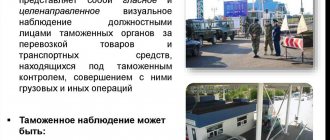Text of the power of attorney
The power of attorney is drawn up in the official language of the country of origin and/or English and must contain:
- manufacturer's name, address;
- the full name of the company representative who has the right to issue such powers of attorney;
- the name of the authorized person whom the manufacturer trusts to represent its interests in the government bodies of the EAEU, in particular the TsLSZ FSB, as well as the location address (for legal entities), passport details (for individuals).
It should be clear from the text of the power of attorney that its recipient is vested with the powers necessary to draw up and register notifications. The use of general vague formulations (“drawing up documents”, “representing interests in the EAEU bodies”, etc.) is fraught with refusal of registration.
The drafting of the text of the power of attorney must be treated with the utmost care. Fixing it later will be long and expensive.
Our experts know the current requirements of government agencies and have “tested” samples and layouts for any occasion. In addition, we are ready to negotiate with the manufacturer’s lawyers in a foreign language, if they have questions or doubts regarding the text of the power of attorney - we will be able to convince them and agree on an option that suits all parties, including government agencies.
Help is needed? Have questions? - Contact us!
For whom to issue a power of attorney?
Both a legal entity and an individual can act as a trustee. Large enterprises issue such documents, as a rule, to their employees - freight forwarders, logisticians, drivers, etc.
- Form and sample
- Free download
- Online viewing
- Expert tested
FILES
This power of attorney, like any other, can be executed with the right of substitution. However, in this case it must be certified by a notary. It is worth noting that enterprises rarely give their representatives this kind of opportunity, preferring instead to issue several powers of attorney to different people with different levels of authority.
Notarization
The power of attorney must be notarized.
Incorrect notarization is the most common mistake when drawing up a Power of Attorney. At this stage, importers face the most difficulties. This is primarily due to differences in the certification procedure in different countries. Notaries in each country have their own template phrases, stamps for such a procedure, which do not always meet the requirements established for the Power of Attorney.
We issue several hundred notifications a year and have extensive experience in working with notarization abroad.
Our experts will provide detailed step-by-step instructions, samples and examples of certified powers of attorney. We will advise the manufacturer at every stage, we will tell you how to correctly explain to the notary what should be indicated in his certification, where to apply for legalization of the power of attorney.
Contact us!
Power of attorney. Form of power of attorney within the framework of customs office work
| Workshop | / Legal block |
Despite the fact that the concept of a power of attorney is enshrined in the civil code of the Russian Federation, its specific forms, types and what powers should be spelled out in it are not defined by Russian legislation. In this regard, debates arise between customs authorities and participants in foreign trade activities regarding the content of the power of attorney and its form.
According to the civil legislation of the Russian Federation, a power of attorney is a written authority issued by one person to another person for representation before third parties.
As for the forms of powers of attorney, the Civil Code defines them as simple written and notarial forms.
Neither civil nor any other Russian legislation regulates the types and content of powers.
That is why the scope of its validity and application will depend on the completeness of the powers set out in the power of attorney.
Taking into account the specifics of such a state body as the customs, we recommend that when drawing up a power of attorney, it should contain only those powers that the representative will need to perform certain actions.
This is necessary not only for an unambiguous interpretation of the powers, but also in order to avoid additional liability based on the powers granted by the power of attorney.
When registering a power of attorney, you must pay attention to such essential details as:
- written form;
- place and date of compilation;
- surnames, patronymic names and place of residence of the principal and attorney;
- powers;
- signature. If a power of attorney is issued on behalf of a legal entity, it must be signed by the head or person who has the right to perform such actions on behalf of the legal entity on the basis of the Constituent Document (usually the Charter) of the legal entity, and also sealed by the legal entity.
Notarization of a power of attorney is required in the case where the need for such a form is expressly provided for by law or other regulatory act, or when a power of attorney is issued to perform actions that, in turn, also require notarization.
Samples of powers of attorney:
Sample power of attorney to receive inventory items (.doc) Sample power of attorney to represent interests in government agencies (.doc) Sample judicial power of attorney (.doc) Sample power of attorney for a customs clearance specialist (.doc) Sample power of attorney to sign contracts (.doc). doc)
Need some advice?
Ready-made solution for your business from CustomsExpert Consulting
When using publication materials, an active hyperlink to https://customsexpert.ru is required.
| Tweet |
Disqus commenting system
Legalization of power of attorney
Legalization of documents is a procedure for giving foreign documents legal force in the territory of another state.
There are two ways to legalize documents: apostille and consular certification.
Apostille is an international standardized form of filling out information about the legality of a document for presentation in countries that recognize this form of legalization.
This form of legalization is recognized by the official bodies of all states party to the 1961 Hague Convention. Various government agencies can certify a document using an apostille: ministries, embassies, courts, etc.
An apostille has a standardized form (stamp) with the title in French “Apostille (Convention de la Haye du 5 October 1961)”. In general, the apostille procedure is the same for all member countries of the Hague Convention.
Consular legalization is a procedure aimed at confirming that an outgoing document sent abroad complies with the laws of the country whose government authorities issued or compiled the document.
This method of legalization is used in document flow with organizations originating from countries that are not parties to the 1961 Hague Convention. Consular legalization of documents is carried out by the consular departments of the Embassy of the Russian Federation in the country of the manufacturer. Consular legalization consists of several stages:
- certification of the signature of a notary in the Ministry of Foreign Affairs of the country of origin;
- proof of the seal and signature of a representative of the Ministry of Foreign Affairs at the consulate of the Russian Federation in the country of the manufacturer of the goods.
The entire process can take from several weeks to a month depending on the country of origin.
We understand the peculiarities of legalization in different countries of the world, moreover, we have practical experience of legalization in dozens of countries.
The legalization process (especially consular certification) can be quite complicated. Don't waste your time and money - trust the professionals!
Power of attorney for submitting reports to the Pension Fund of Russia
In accordance with Art. 11 No. 27-FZ, companies submit to the Pension Fund information about insurance premiums and insurance experience of employees, as well as about other persons to whom they paid income. Without confirmation of authority, submission of reports to the Pension Fund of the Russian Federation is carried out only by the legal representative of the organization - its head.
Individuals provide information to the Pension Fund as an employee of an organization, a third party, or another legal entity, having a standard power of attorney. Such a document is created in writing. It is signed by the head of the organization. It indicates the date of issue and validity period of the power of attorney. If the expiration date of the document is not specified, then it is used for one year.
If the submission of reports to the Pension Fund of Russia is carried out on behalf of an individual, then such a power of attorney is certified by a notary.
A standard form of the policyholder's power of attorney for the right to represent the interests of the principal in the territorial pension authority is posted on the PFR website.
How to carry out electronic document transfer between the policyholder and the Pension Fund of Russia can be found in the section “Information for residents of the region”.
Power of attorney to the Pension Fund (sample)
Notarized translation of the Power of Attorney
In Russia, the entire set of documents (power of attorney, notarization, apostille) must be translated into Russian with the translator’s signature notarized. The authorities registering notifications carefully check the compliance of the translator’s text with the original text of the power of attorney. Therefore, the translation must be done with high quality, without typos, inaccuracies and free interpretations of terms.
We work exclusively with qualified translator partners who have extensive experience in translating powers of attorney for submission to the FSB.
Contact us and you can be sure of a quality result.
What types of powers of attorney are there?
It is immediately necessary to make a reservation that civil legislation does not in any way divide powers of attorney into types; it only establishes the possibility of indicating in the power of attorney the range of powers of the representative.
However, lawyers distinguish several types of power of attorney, based on practice.
General power of attorney
It gives the representative the maximum package of powers without being tied to a specific task. The attorney has almost complete freedom of action.
Such a document can only be signed by the head of the principal legal entity, and the organization’s seal (if any) must be affixed to the form of the document. Also, such a power of attorney can be certified by a notary, but you will not find the concept of “general power of attorney” in the Law. Previously, the term “general power of attorney” could be found in the Methodological Recommendations for Certifying Powers of Attorney of the Chamber of Notaries, but these recommendations were abolished in 2015. In modern notary regulations, general powers of attorney are not found. This does not change the prevalence of this type of power of attorney in practice.
A power of attorney usually contains text with the following content:
“I trust (the attorney) to manage and dispose of all my property, whatever it may be and wherever it is located, as well as to enter into all transactions permitted by law for the management and disposal of property; accept or refuse an inheritance; receive property, money (deposits), securities, as well as documents due to me from all persons, institutions, enterprises, organizations, including from branches of banks of the Russian Federation, post offices and telegraph offices for all reasons; manage accounts in banks of the Russian Federation; receive postal, telegraph and other correspondence of all kinds, including money and parcels; conduct business on my behalf in all government agencies, cooperative and public organizations, as well as conduct my affairs in all judicial institutions.”
As you can see, a general power of attorney gives the representative almost unlimited powers. Such a power of attorney should be drawn up only when there is an inevitable need to vest one person with the authority to carry out all transactions and represent the interests of a legal entity in all government agencies and non-governmental organizations. There is a risk that the representative will use an unlimited power of attorney against the interests of the principal, and transactions made by the representative under the power of attorney may be challenged in court. If the attorney does not need to transfer all powers, then it is better to issue a special or one-time power of attorney.
Special power of attorney
It gives the representative the right to repeatedly perform certain actions of the same type. Such a power of attorney is most often issued to employees for the duration of their work function, which is associated with representing the interests of the organization in specific aspects. For example, a seller may be entrusted with the right to conclude transactions, and a lawyer may be entrusted with representing the interests of the organization in all courts and regulatory authorities.
Example of wording in a special power of attorney for a company lawyer:
“Limited Liability Company “Test” authorizes (attorney details) to represent on behalf of LLC “Test” in all courts of the Russian Federation, including arbitration, federal courts of general jurisdiction and magistrates, to perform all procedural actions provided for by current legislation ...; receive any documentation with the right to sign all necessary documents and perform all actions necessary to exercise the powers provided for by this power of attorney.”
A special power of attorney can be issued for either a short period or several years.
One-time power of attorney
Such a power of attorney is drawn up when the attorney is required to perform only one action in the near future. The validity period of such powers of attorney is usually no more than a month, so that the employee completes the assignment on time and does not use the power of attorney for other purposes. A one-time power of attorney may be required if you need to direct an employee to a one-time, unusual assignment.
For example, a company may ask a trainee to pick up a letter from the post office by issuing him a one-time power of attorney indicating a specific post office and postal item. When the internship period ends, the power of attorney will no longer be valid.
How to issue a power of attorney to represent interests
In most cases, notarization of a power of attorney on behalf of a legal entity is not required. But the power of attorney will be considered valid only if the following data is available:
- date of registration (and the validity period may not be specified);
- details of the organization and information about the director;
- list of powers of the representative (as detailed as possible);
- attorney's passport information;
- handwritten signature of the principal's director.
However, for transactions with shares in an LLC and real estate, a notarized power of attorney will be required (Article 185.1 of the Civil Code of the Russian Federation).








